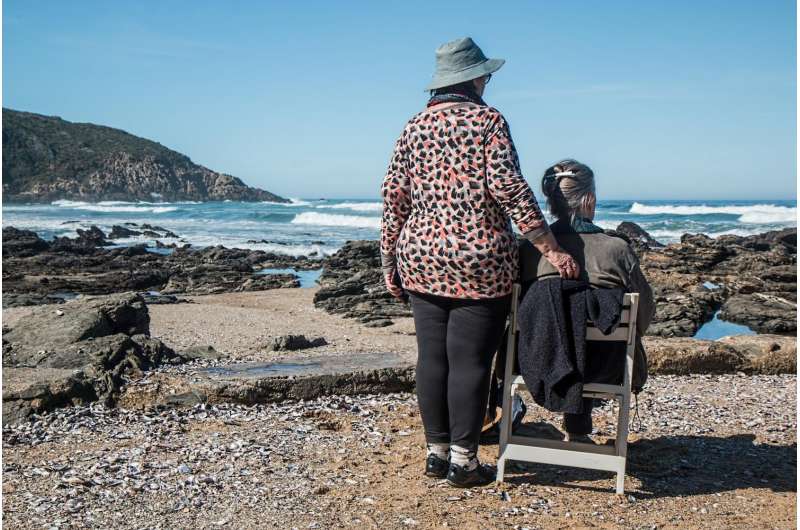No 'changing room moment' for men as they age

Men, unlike women, do not suffer from the 'changing room moment' when they suddenly realise they are too old for certain types of clothes, according to new research from the University of Kent.
The research, published in the journal Ageing and Society, was conducted by Professor Julia Twigg from the School of Social Policy, Sociology and Social Research.
For the research on how men respond to fashion and clothing choices as they age Professor Twigg conducted 24 in-depth interviews with men aged between 58 and 85 from a variety of social backgrounds and sexual orientations.
From this, it was clear that men did not face the same 'changing room moment' as did women when they saw themselves in the mirror and realised that the item was now 'too young'. Most remained comfortable in the outfits they had worn earlier in their lives, particularly if their careers required them to dress in a certain way.
For instance, those from 'creative' industries continued to dress in stylish, fashionable manner while others had a smart-casual style, mixing blazers with trousers and ties and shirts as they wanted. Others embraced retirement as a chance to expand their wardrobe and add more colour to their clothing, with some embracing the shift in cultural norms that means pink is now an acceptable colour for men, for example.
Furthermore, they saw clothing worn by younger men that they did acknowledge as 'too young' for them—such as hoodies, trainers, and tight jeans—as 'silly' and viewed it with contempt and so something they would never want to wear.
However, the men interviewed did have a strong negative reaction to clothing that they thought would mark a clear end to masculinity and the onset of a decline of life—with elasticated trousers viewed with horror.
This concern of a loss of masculinity in clothing choices also related to the idea of wearing dirty or unkempt clothing. Several of the men interviewed relayed stories of men they knew who they viewed with a mix of mild disdain or pity when they saw them in a poorly dressed state, as it suggested to them that they had lost their inherent masculinity and were effectively giving up.
Notably, many linked this situation to the loss of a wife who was seen as previously responsible for ensuring this did not happen.
Finally, despite being confident in their dress choices, several men admitted that changes in body size that come with old age impacted their ability to dress as they wished, with some noting the ways clothes 'shrink in the wardrobe'.
Commenting on the research Professor Twigg said: 'It is clear men have a different relationship to dress from women, and the research shows that this continues into later life. There is less in the way of age anxiety in their choices, but there are clearly issues that affect how they dress and how this changes as they get older.'
Professor Twigg has conducted numerous in-depth studies on the cultural and social responses people have to the clothing they wear. This includes a prior study of how age impacts female responses to clothing and the perception that there is a cut-off point at which certain items become 'unwearable' to women for fear of appearing 'foolish'.
The research, entitled Dress, gender and the embodiment of age: men and masculinities, has been published in the journal Ageing and Society.
More information: Julia Twigg, Dress, gender and the embodiment of age: men and masculinities, Ageing and Society (2018). DOI: 10.1017/S0144686X18000892
Provided by University of Kent


















